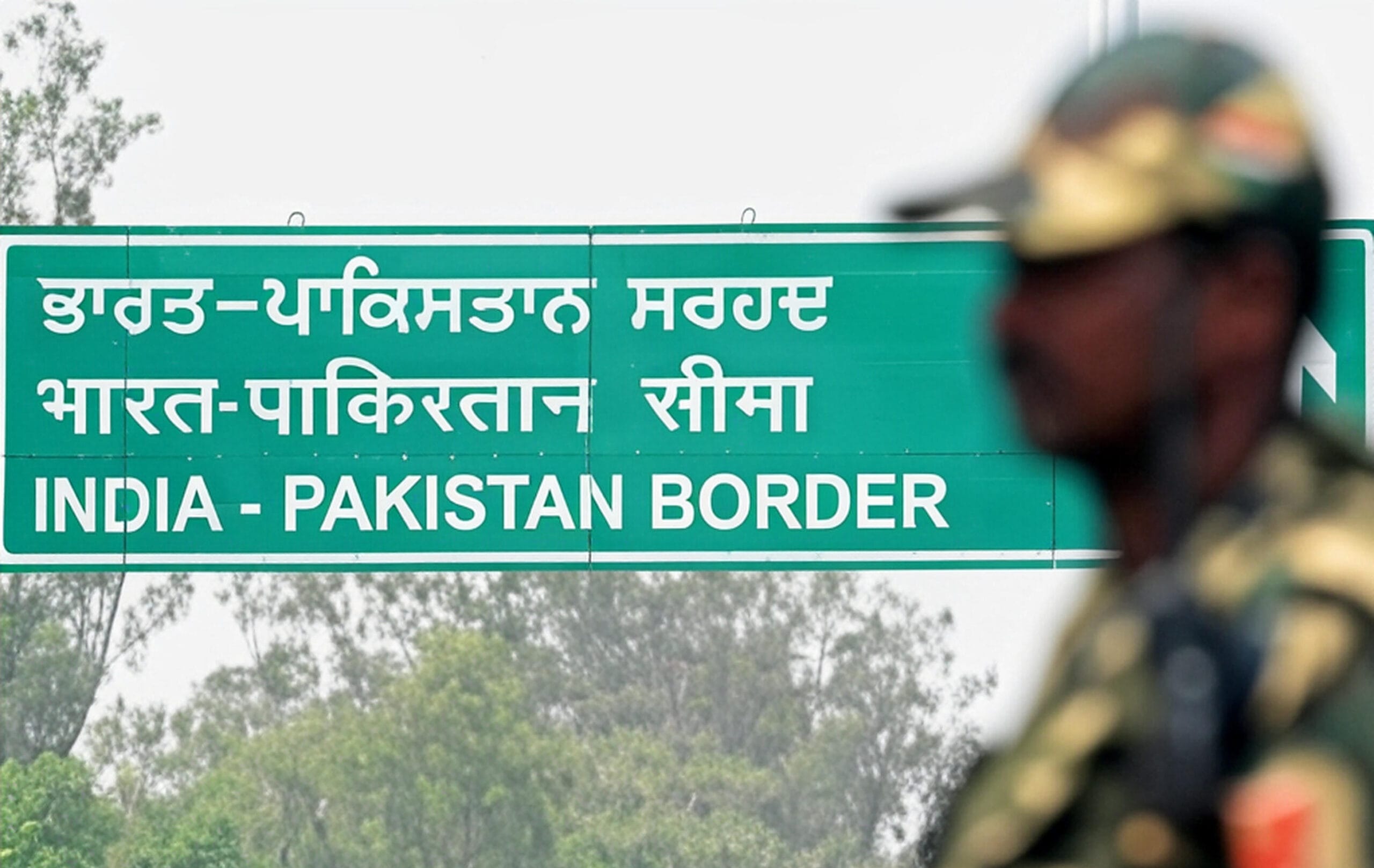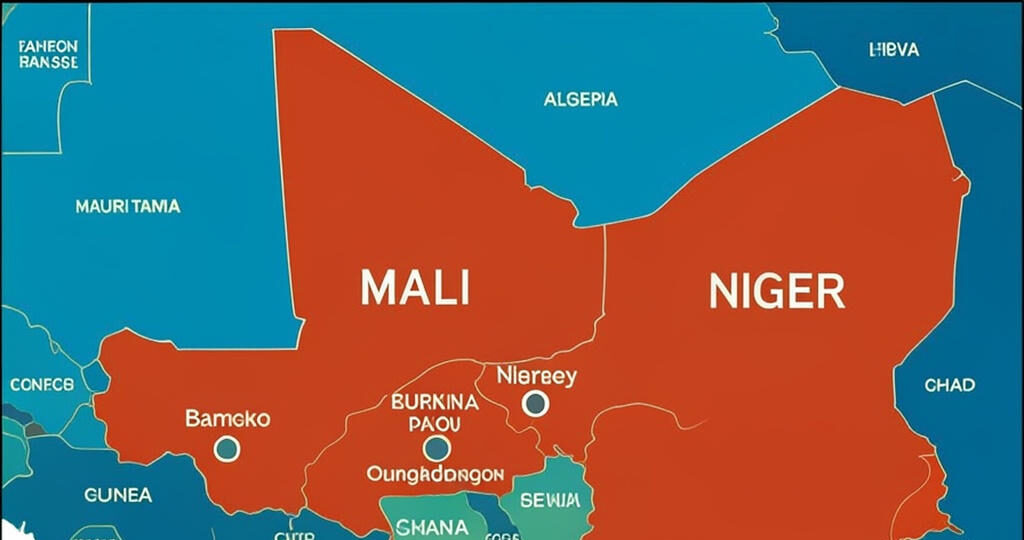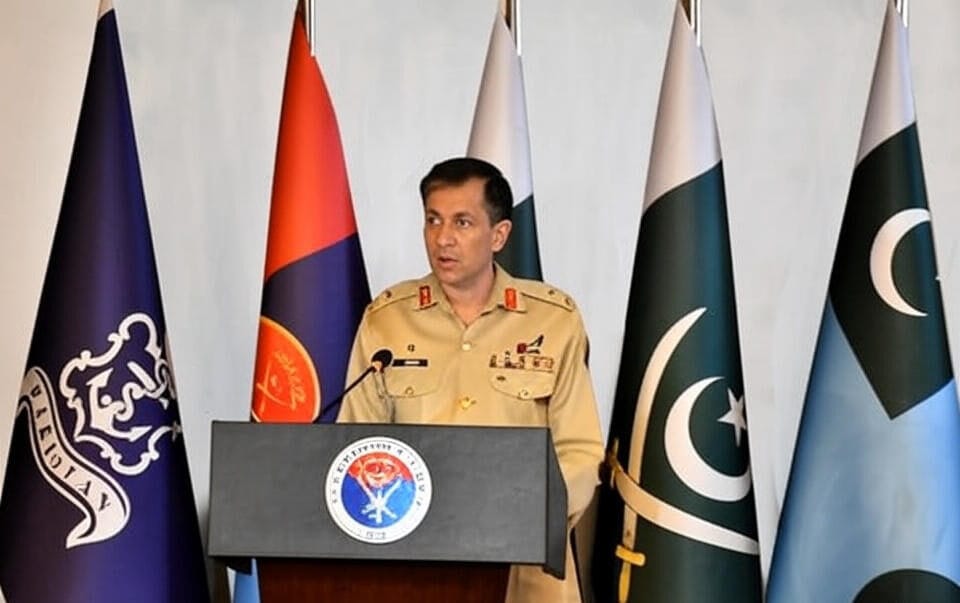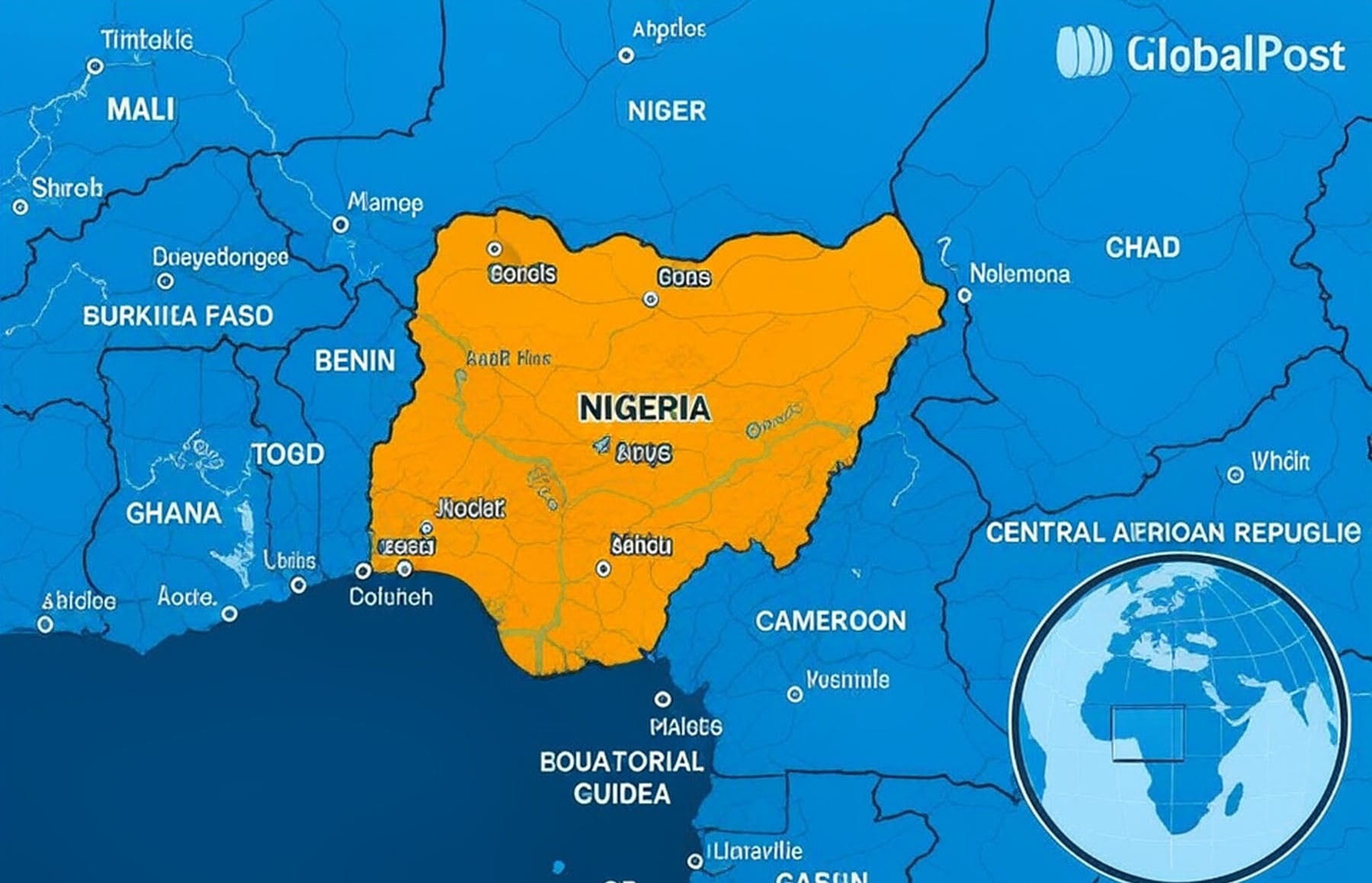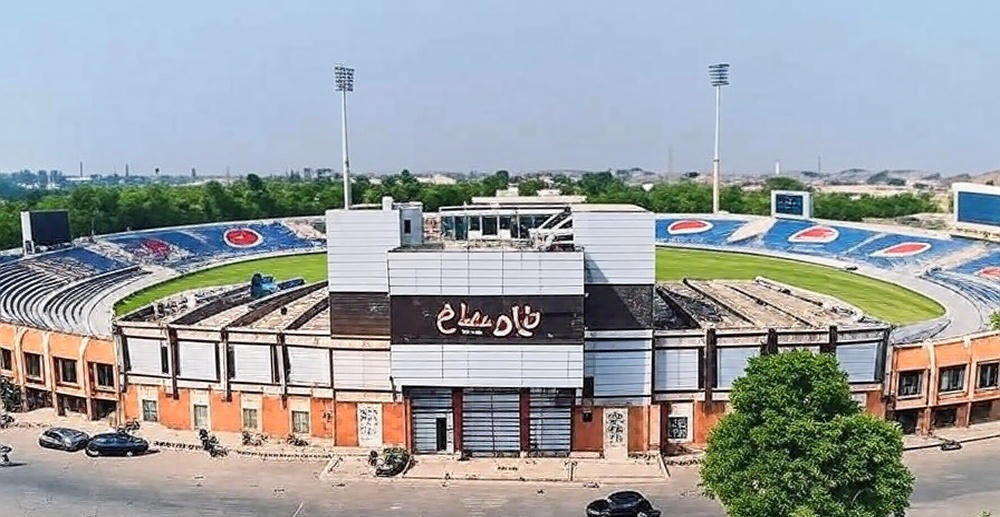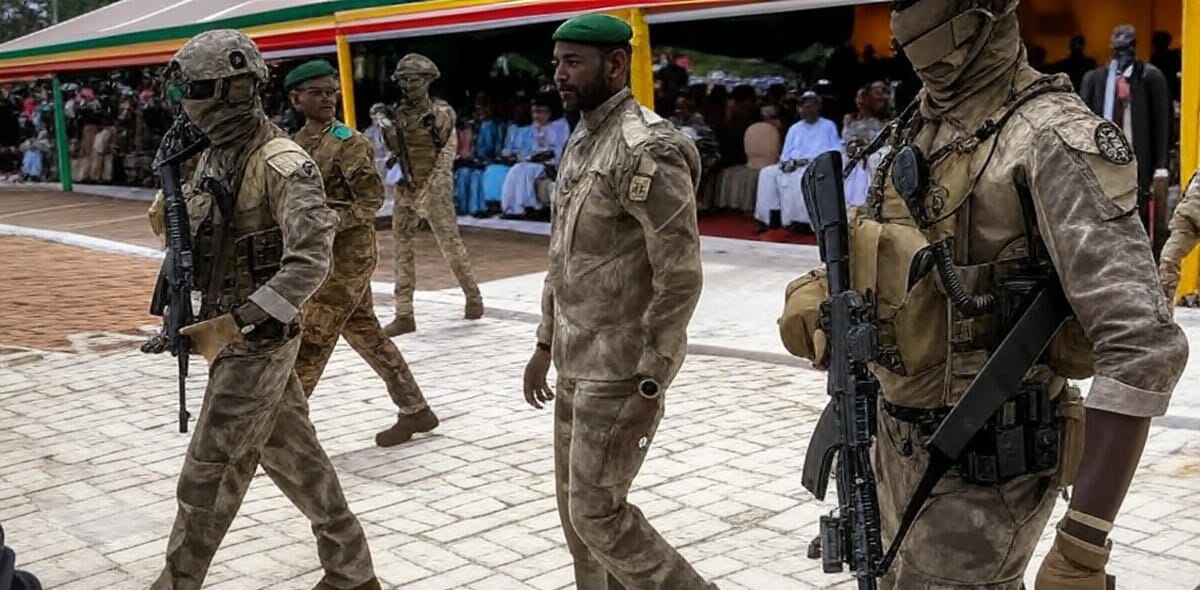
November 7, 2025
Mali, once a beacon of West African democracy in the 1990s, now stands at a perilous crossroads. As of November 2025, the landlocked nation is ensnared in a deepening spiral of political repression, jihadist insurgency, and humanitarian catastrophe. Under military rule since the 2021 coup, the junta led by Colonel Assimi Goïta has postponed elections indefinitely, banned political activities, and pivoted toward Russia while alienating traditional Western partners. Meanwhile, JNIM militants—affiliated with Al Qaeda—are advancing toward the capital, Bamako, marking the most severe security threat in years. This Mali crisis analysis explores the intertwined political, security, and humanitarian dimensions, drawing on the latest reports to assess pathways forward.
Political Stagnation Under Junta Rule
Indefinite Delay of Democratic Transition
The military junta has repeatedly deferred elections, originally promised for 2022 and extended to 2024, citing insecurity. Critics argue this is a pretext for power consolidation. In May 2025, the National Transitional Council passed legislation effectively outlawing multiparty politics, prohibiting opposition gatherings and media coverage of political events.
Suppression of Dissent and Civic Space
Mass protests erupted in Bamako on May 3, 2025, against these measures, leading to the dissolution of civil society groups and a three-month ban on political activities (lifted in July but with ongoing restrictions). The Haute Autorité de la Communication (HAC) suspended outlets like TV5 for “biased” reporting, while opposition youth leaders face abductions. Freedom House rates Mali as “Not Free” in 2025, reflecting a sharp decline in political rights.
Regional Realignment and Isolation
Mali’s withdrawal from ECOWAS in January 2025—forming the Alliance of Sahel States (AES) with Burkina Faso and Niger—signals a shift from regional integration. Strengthened ties with Russia, including Wagner Group (now Africa Corps) mercenaries, have replaced French and UN peacekeeping forces, further isolating Mali from Western aid and diplomatic pressure.
Escalating Security Threats
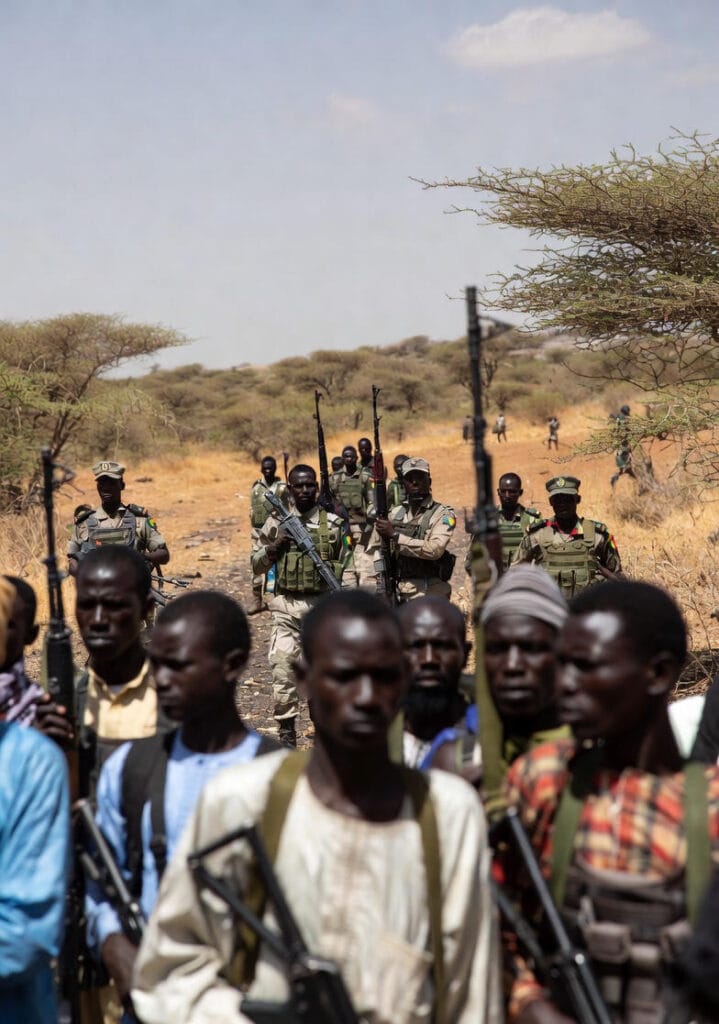
JNIM’s Bold Advance on Bamako
The Jama’at Nusrat al-Islam wal-Muslimin (JNIM) launched its most audacious attack yet on September 18, 2025, targeting a gendarmerie school and military base in Bamako—the first major incursion into the capital. By early November, militants were reported within striking distance, ambushing fuel convoys and severing supply lines, triggering nationwide shortages.
Malian Forces and Russian Support
The Malian Armed Forces (FAMa), bolstered by Russian drones and mercenaries, recaptured areas like Sebabougou in April 2025, claiming 21 militant deaths. However, ACLED data reveals 239 operations against civilians from January to October 2025, resulting in 1,021 deaths—a 61% surge from 2023. Allegations of extrajudicial killings undermine legitimacy.
Intercommunal Violence and Territorial Losses
In central and northern Mali, ethnic tensions fuel clashes over resources. JNIM and Islamic State in the Greater Sahara (ISGS) exploit governance vacuums, controlling swathes of territory and imposing harsh rule. Western regions remain under-policed, allowing insurgent expansion.
Humanitarian Catastrophe Unfolding
Displacement and Acute Needs
Over 6.4 million Malians—27% of the population—require aid in 2025, per IOM. Conflict displaced thousands in March–April, with 3.7 million facing food insecurity and 1.9 million lacking clean water. UNFPA warns of rising gender-based violence (GBV) among IDPs, with funding shortfalls forcing program cuts.
Health, Education, and Access Barriers
Climate change exacerbates droughts, while blockades hinder aid delivery. 2.5 million face severe health risks, including disease outbreaks. The Truth, Justice, and Reconciliation Commission remains stalled, denying reparations to victims of past atrocities.
International Evacuation Advisories
The UK, US, and Germany issued urgent evacuation notices for nationals in Bamako in November 2025, citing imminent threats and fuel shortages. This underscores the crisis’s global ripple effects.
Challenges and Recommendations
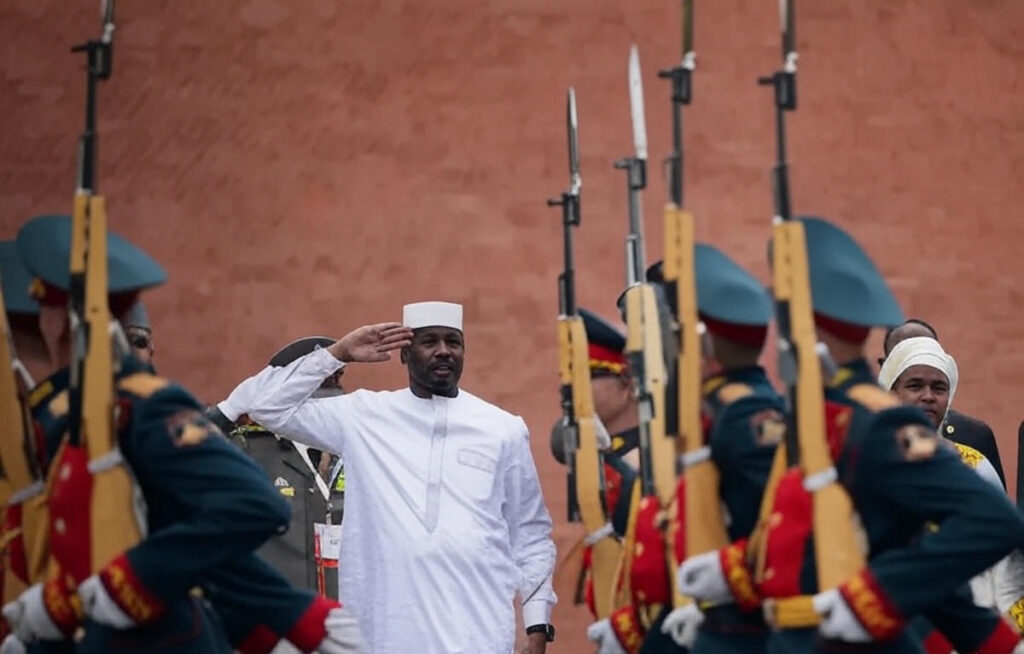
Addressing Root Causes Beyond Military Action
While counter-terrorism operations yield tactical gains, they fail to tackle grievances like poverty, marginalization, and ethnic divides. Experts advocate integrating local leaders—”invisible players”—into peace processes.
Restoring Democratic Governance
International pressure must push for credible election timelines and lifted political bans. The African Union and UN could mediate inclusive dialogues, but AES alignment complicates enforcement.
Humanitarian and Development Priorities
Donors should bridge funding gaps, prioritizing community resilience in FATA-like regions through education, healthcare, and livelihoods. Localized ceasefires could enable aid access.
Regional and Global Engagement
The Sahel crisis demands coordinated action. ECOWAS reintegration, balanced Russian partnerships, and U.S./EU counterterrorism support—without sovereignty infringement—are critical.
Conclusion: A Call for Urgent, Inclusive Action
Mali’s 2025 trajectory risks state collapse if current trends persist. The junta’s authoritarian drift, JNIM’s territorial gains, and humanitarian suffering form a vicious cycle demanding multifaceted intervention. As Bamako teeters on the edge, the international community must prioritize diplomacy, aid, and accountability to avert broader Sahel destabilization. Mali’s people deserve a future beyond survival—restoring hope requires courage from leaders and solidarity from allies.
References
https://thesoufancenter.org/intelbrief-2025-november-4/https://www.theguardian.com/world/2025/nov/01/how-al-qaida-linked-jihadist-group-jnim-is-bringing-mali-to-its-kneeshttps://sof.news/africa/jnim-mali/https://eurafrica.info/2025/11/03/jnim-attacks-in-western-mali-reshape-sahel-conflict-2/https://www.cnn.com/2025/11/02/africa/mali-security-fuel-shortages-intlhttps://africacenter.org/spotlight/jnim-attacks-western-mali-sahel/https://krdo.com/news/2025/11/02/jihadi-fighters-affiliated-with-al-qaeda-close-in-on-malis-capital-as-instability-grows-across-sahel-region/https://www.african-bulletin.com/10682-mali-faces-mounting-pressure-as-jnim-expands-operations-and-fuel-blockades-deepen-crisis.htmlhttps://medium.com/@OS_Okonkwo/mali-crisis-2025-why-its-worse-d194324d7532https://www.securitycouncilreport.org/monthly-forecast/2025-11/west-africa-and-the-sahel-15.php
